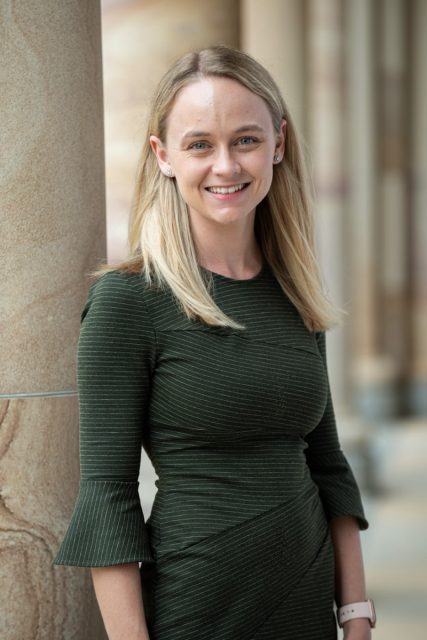
Empowering Students: Tailoring Course Content Through Active Engagement
ECA Blog: June 2024
Dr Mikaela Wheeler, Early Career Academic Committee
Lecturer, School of Public Health, The University of Queensland

As I sat at my desk planning for the semester ahead, I wondered: what skills did my students want to learn this semester? What motivated them? And how could I connect the two to deliver a fun, meaningful, and impactful semester?
To answer these questions, I decided to engage students in directing (part of) their learning. While the course had overarching learning objectives we needed to meet, I wanted to provide students with opportunities to learn or practice skills they felt they hadn’t mastered so far in their university journey. I launched an online survey before the semester, asking students to rate their confidence with completing general academic skills (i.e., study skills, note-taking, critical evaluation, public speaking). I also asked about their goals, motivations, and desires for the course.
What I found was that:
• Students valued a safe space where they felt comfortable making mistakes and asking questions.
• Developing a genuine connection with teaching staff was highly important.
• This cohort felt the least confident with completing critical evaluation, developing a scientific argument, and presenting scientific information in creative formats (infographics, posters, etc.).
Armed with this knowledge, I then set out to integrate activities that developed these skills into our existing class schedule and provided opportunities for students to receive feedback on their progress with these skills. A very real challenge with this approach, however, was waiting for students to provide their input on course direction and requiring quick action to develop and integrate activities in time for delivery within the semester. Despite the quick turnaround, I was able to develop and integrate activities, and student feedback on the approach was very positive. “Assessment & class activities that were targeted at gaining skills, rather than exams, were beneficial as I feel I am now better equipped for a career in Medicine or Public Health,” (Second-year undergraduate student at UQ). I now use this approach every year, and it has been interesting to see how the needs and preferences of students have changed with each cohort.
As an early career academic, engaging my students in the decision-making process of course content lifted some of the ‘pressure’ of developing content and gave me confidence that I was delivering useful and impactful learning opportunities that developed students’ skills more broadly than just our course learning objectives.
Biography
Dr Mikaela Wheeler is a Lecturer, School of Public Health, The University of Queensland and has clinical and research expertise as a dietitian in residential aged care and community settings. Her research focuses on improving the lives of older people through addressing poor nutrition, social isolation, and specialist care for people living with dementia. In her teaching, Mikaela delivers undergraduate courses in chronic disease and nutrition across the lifespan.
LinkedIn: https://www.linkedin.com/in/mikaela-wheeler-apd
University Profile: https://researchers.uq.edu.au/researcher/33449
Email:
What’s on your nightstand? Probably like many people, I have a pile of books that I’ll get around to reading, but never actually do.